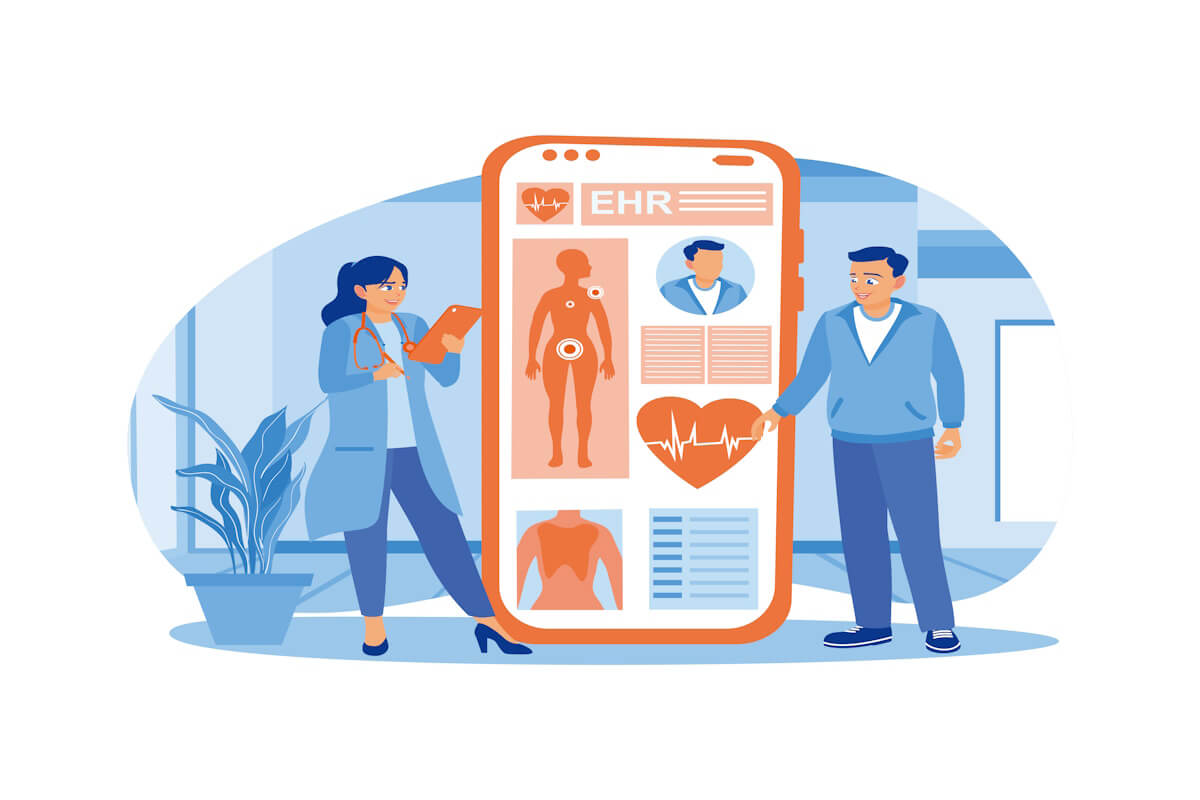Mobile apps have revolutionized the way we manage chronic diseases. With the increasing prevalence of chronic conditions such as diabetes, heart disease, and hypertension, it has become crucial to find innovative solutions to help patients monitor their health and improve their quality of life. In this article, we will explore the impact of mobile apps on chronic disease management and how they are changing the landscape of healthcare.
Improved Access to Health Information
Mobile apps provide easy access to health information for patients managing chronic diseases. These apps allow users to track symptoms, medications, and vital signs, enabling them to stay informed about their condition. Real-time data can be shared with healthcare providers, facilitating personalized care and interventions. Key benefits include:
- Tracking symptoms, medications, and vital signs
- Sharing real-time data with healthcare providers
- Enhancing communication between patients and providers
Enhanced Self-Management
Empowering patients to take control of their health, mobile apps offer features such as medication reminders, activity trackers, and diet journals. These tools help patients adhere to treatment plans and promote self-care practices. Benefits of enhanced self-management include:
- Encouraging adherence to medical recommendations
- Improving health outcomes and reducing complications
- Supporting patients in staying on track with their treatment plans
Remote Monitoring and Telemedicine
In the era of telemedicine, mobile apps play a crucial role in remotely monitoring patients with chronic conditions. These apps can collect and transmit data like blood glucose levels, blood pressure readings, and heart rate measurements to healthcare providers in real-time. Advantages of remote monitoring and telemedicine include:
- Early detection of changes in the patient’s condition
- Timely interventions to prevent exacerbations or complications
- Improved access to healthcare services, especially in remote areas
Personalized Care Plans
Mobile apps for chronic disease management allow for the customization of care plans based on individual patient needs and preferences. Patients can set goals, track progress, and receive personalized recommendations for managing their condition. Benefits of personalized care plans include:
- Tailored approach to care
- Providing support and guidance for effective management
- Empowering patients to take an active role in their healthcare
Health Education and Behavioral Support
Many mobile apps offer educational resources and behavioral support tools to help patients understand their condition and make healthy lifestyle choices. These apps may provide tips on nutrition, exercise, stress management, and medication adherence, as well as motivational messages to keep patients engaged. Benefits of health education and behavioral support include:
- Empowering patients to make positive changes in their health habits
- Enhancing understanding of the condition and treatment options
- Improving patient engagement and motivation towards self-care
The Future of Chronic Disease Management
As technology advances, mobile apps have the potential to transform chronic disease management. From artificial intelligence to virtual reality and wearable devices, innovative technologies will empower patients to take control of their health. Mobile apps will continue to play a central role in this evolution, providing tools and resources for effectively managing chronic conditions. The future of healthcare will be shaped by the integration of technology and patient-centered care.
In conclusion, the impact of mobile apps on chronic disease management is significant. These apps improve access to health information, enhance self-management practices, enable remote monitoring and telemedicine, personalize care plans, and provide health education and behavioral support. As we embrace technology in healthcare, mobile apps will play a crucial role in transforming how we prevent, diagnose, and manage chronic diseases.
Looking for innovative solutions to manage chronic diseases more effectively? Our team is here to help you harness the power of mobile apps for better health outcomes. Contact us today to learn more!
FAQs:
How do mobile apps impact chronic disease management?
Mobile apps improve access to health information, enhance self-management practices, enable remote monitoring, and provide personalized care plans for patients with chronic diseases.
What features do mobile apps for chronic disease management typically include?
Mobile apps often include features such as symptom tracking, medication reminders, activity trackers, diet journals, and personalized care plans tailored to the individual needs of the patient.
How do mobile apps facilitate remote monitoring of patients with chronic conditions?
Mobile apps can collect and transmit real-time data such as blood glucose levels, blood pressure readings, and heart rate measurements to healthcare providers, allowing for early detection of changes in the patient’s condition and timely interventions.
Do mobile apps for chronic disease management provide educational resources and behavioral support?
Yes, many mobile apps include educational resources and behavioral support tools to help patients better understand their condition and adopt healthy behaviors to manage their chronic disease effectively.


